| Scandi-lous
I was blissfully unaware that London’s Brick Lane, and the historic Truman’s Brewery site, was to play host to such an important cultural event as Nordicana last month, possibly the biggest display of the impact of Scandinavian culture on Britain since the sack of Lindisfarne in 793 AD.
  
I was unaware, that is, until I discovered ‘social meeja’ – or at least that’s what I think it’s called – alerted by an irate ‘blog’ by none other than Shots Magazine’s very own roving reporter Ayo Onatade. Now Ayo is a dedicated fan of crime fiction and a gentle and generous soul who has disposed of much of her private fortune helping crime writers fallen on hard times. Ayo usually sees the good in things but her report on the first day of Nordicana was nothing less than irate in tone, her ire aimed squarely at the organisation of the event rather than its stars, most prominent among them being, naturally, Professor Barry Forshaw, clearly the reason the event was so wildly oversubscribed.
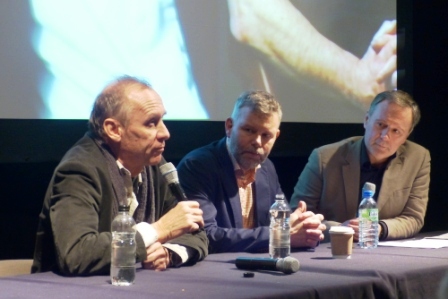 
[Picture credit: Ayo Onatade]
Surprised by the fierceness of Ayo’s criticism I engaged the services of a five-year-old urchin to show me the mass of angry ‘tweets’ and messages posted on various websites about Nordicana, only to discover that Ayo had been rather restrained.
‘Unbelievably poor event’, ‘A rip-off farce’, ‘An absolute shambles’, ‘No light in main room, freezing, long queues, delays… a complete rip-off’, ‘An insult to the artists and the paying fans’ and ‘A shambolic mess’ were merely the most printable of the complaints from attendees who had coughed up £27.50 a ticket as well as travelling many miles to get there. (Some, I’m told, from Scandiwegia.) One disgruntled fan even went so far as to make up a mnemonic: N is for no heating; O is for oversold and overcrowded; R is for really bad sound quality; D is for disrespectful to actors; I is for I could have done better; C is for ceilings that dripped; A is for alarming safety violations; N is for no toilet rolls; A is for ask for a refund.
I am not at all sorry that this event passed me by completely. Had I known about it I may have been tempted if only because from years ago I have fond (albeit pleasantly hazy) memories of attending events at the Truman’s Black Eagle Brewery when indeed it was a brewery. They knew how to organise a piss-up in one in those days.

TV (olden) Times
They say that if you can remember it is called Alzheimer’s, then you haven’t got it, which comes as a great relief as I simply cannot remember anything at all about the television thriller The Racing Game and that includes seeing it.
{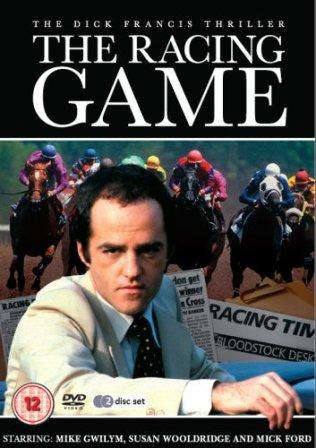
The Yorkshire Television production, which ran for two series 1979-80, was based on the characters Sid Halley and sidekick Chico Barnes created by the late Dick Francis in his 1965 novel Odds Against, which of course I do remember with great fondness. To coincide with the broadcast of The Racing Game, Dick Francis published Whip Hand in 1979, although that novel was a novel and not based on the TV series (for which I believe Dick wrote some of the scripts), and went on to win the Crime Writers’ Association’s Gold Dagger with it.
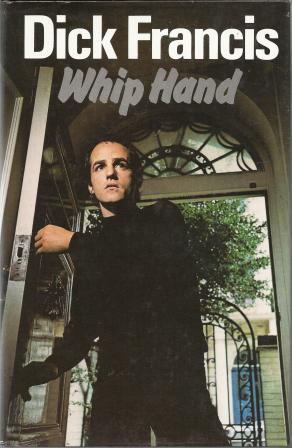
The cover of the hardback edition showed Mike Gwilym, the Welsh actor who played ex-jockey turned detective Sid Halley, although he was probably better known for Shakespearean roles. Gwilym dropped out of acting in his forties and moved to Spain. His Racing Game co-star, playing Chico Barnes, was another up-and-coming Shakespearean actor, Mick Ford, who went on to exchange acting for scriptwriting, including episodes of Ashes to Ashes and Inspector George Gently.
Amazingly, Gently has been running for seven years now. It seems like only yesterday that I was wondering why the East Anglian settings of the late Alan Hunter’s novels (there were 46 in all) had been transposed for television to the Tyne and Wear region, set in the Sixties and in a large part filmed in Ireland!
Irish Eye
Dublin-based author Declan Hughes made his name with five novels featuring Ed Loy, whom several commentators have described as ‘the definitive Irish private eye’. Indeed I believe his first appearance was honoured with a Shamus Award from the Private Eye Writers of America, where Irish crime writers have been well represented in recent years.
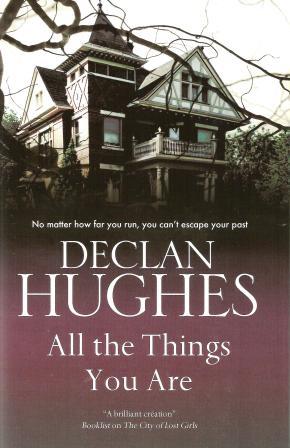 Hughes’ new novel, All the Things You Are, from Severn House, is something of a departure. Set in America – mainly Wisconsin and Chicago but also the intriguingly-named Lake Ripley – but with at least one major Irish character (a very nasty gunman called Charlie T), this is a psychological thriller about events from the past resurfacing after thirty-five years to disrupt seemingly settled suburban lives. Hughes’ new novel, All the Things You Are, from Severn House, is something of a departure. Set in America – mainly Wisconsin and Chicago but also the intriguingly-named Lake Ripley – but with at least one major Irish character (a very nasty gunman called Charlie T), this is a psychological thriller about events from the past resurfacing after thirty-five years to disrupt seemingly settled suburban lives.
In structure, this is a mystery which appears to follow the established conventions of psychological suspense (and there’s nothing wrong with that) but Hughes leavens his plot with bombshell flashbacks, loving references to old movies and TV shows and some seriously spooky set pieces. The opening line – ‘Danny Brogan burned his future wife’s family to death when he was eleven years old’ – is what is known in the business as a ‘Hook’. And a jolly sharp one it is.
Ski Sunday
Utterly exhausted by simply watching the exertions of the GB Ladies curling team at the Winter Olympics, and still puzzling over why such a form of aggressive housework should be classed as an Olympic sport, I scoured one of the many libraries here at Ripster Hall to find myself something to read.
I was instinctively drawn to two fifty-year-old thrillers which both feature muscular, two-fisted heroes of Scottish descent, isolated luxury retreats atop Swiss mountains, beautiful women, mad criminals, murder and plenty of downhill skiing at ferocious speeds. One you may have already guessed but not the other, earlier, one.
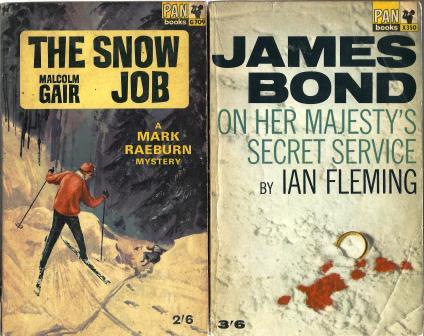
The Snow Job by Malcolm Gair, first published in 1962, was the sixth and last thriller to feature Mark Raeburn, that rarest of heroes, a credible British private eye. His creator’s real name was John Dick Scott (1917-1980) and he actually was a Scot, who during WWII became a senior civil servant in the Air Ministry and in 1944 joined the Cabinet Office as an official war historian. One of his lesser known works, though I am sure equally as gripping as his fiction was his history of the administration of war production, co-authored with Richard Hughes.

Although some of Scott’s non-crime novels have been recently revived by Edinburgh publisher Canongate, the six Mark Raeburn thrillers he wrote as ‘Malcolm Gair’ between 1957 and 1962, are increasingly difficult to track down though they are all cracking stories told at great pace and usually coming in at under 160 pages, which makes much of today’s crime fiction seem a tad overblown.
Unlike Mark Raeburn and Malcolm Gair, James Bond and Ian Fleming require little introduction and no-one has any trouble finding a copy of On Her Majesty’s Secret Service these days even more than half-a-century since its first publication in 1963. However, despite an impressive first print run of 45,000 copies, a UK first edition inscribed by the author could set you back £13,000, which I believe is the equivalent to nine times James Bond’s annual secret service salary at the time.
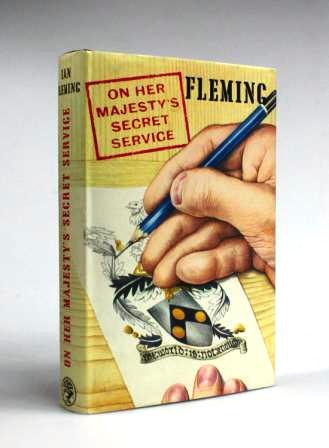
There is a school of thought (from which I was expelled many years ago) that OHMSS is not only the best Bond book, but also made the best Bond film. There was no doubt, though, that Ian Fleming (and Malcolm Gair) tapped into something popular when they set their thrillers on the luxurious ski slopes of Switzerland. It did not, however, work for everyone, even if their name was Fleming.
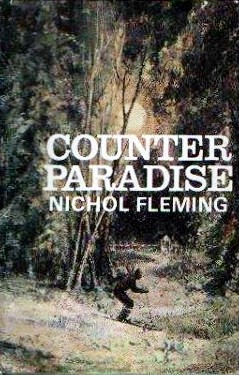
The 1968 thriller Counter Paradise is almost totally forgotten these days, despite being written by Nicholas (‘Nichol’) Fleming (1939-1995), the nephew of Ian and son of Peter Fleming and Celia (‘Brief Encounter’) Johnson. I have seen, on the interweb, the ridiculous conspiracy theory that Nichol Fleming was actually paid ‘by Hollywood’ not to write thrillers as his name could be easily confused with that of his uncle. Whoever thought that one up was probably called Ernst Stavro something-or-other.
From Austria With Love
It is a rare event, in fact I would say unique, for me to be sent an Austrian crime novel to peruse. Imagine my surprise (Überraschung) then when I am informed not of one (ein) but two (zwei) due out in the UK this year.
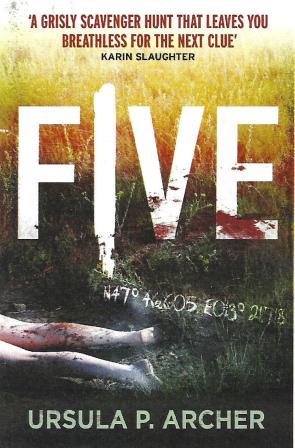
In May, Vintage will publish ‘a grisly scavenger hunt’ thriller titled Five by…well, I’m not quite sure. The cover of the English language proof (the German version came out two years ago) says the book is by Ursula P. Archer, yet the title page and © line suggests that the author is actually Ursula Poznanski, a Vienna-based editor and writer of young adult fiction and a quick trawl through the murky waters of the interweb would support this theory.
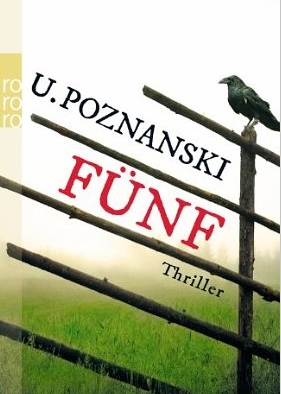 
Given that even my German (and I havealways admitted that modern languages are not my forte) runs to being able to translate Fünf as Five I assume that they are one and the same book; though whether the delightful author is‘U. Poznanski’, ‘Ursula Poznanski’ or ‘Ursula Archer’ I am unclear.
In the summer – August to be exact – Serpent’s Tail publish another Austrian for the first time in English, in the form of the ‘psychological literary thriller’ Indigo by Clemens J. Setz (the J stands for Johann), which the normally reserved Serpent’s Tail catalogue describes as ‘Thomas Pynchon meets Stephen King’ which is intriguing.
Now here I am sure I have the right author and the right book as it was first published in German in 2012 as Indigo, which even I could work out.
From Bosworth Field
As I noted last month, the briefest mention of that much-maligned king Richard III results in a bulging postbag here at Ripster Hall (which has always stayed loyal to the Yorkist cause).

Among the usual threatening missives from Lancastrians and various Tudor factions, was something actually very interesting for once, a paper from 1978 published in the learned journal The Practitioner which discusses the medical background to claims that Richard was a ‘bunch-back’d bottled spider’ with six fingers on one hand. Claims, it seems, mostly made by Sir Thomas More (who was five when Richard was slaughtered at Bosworth) and Shakespeare (who was writing a century later in the reign of Henry Tudor’s grand-daughter).

It’s fascinating stuff, analysing the symptoms of the genetic deformities produced by what is now known as Ellis-Van Creveld Syndrome and comparing them to More’s description of Richard and lines in Shakespeare’s plays, not just Richard III but also Henry VI (Part 2), as well as the state of medical knowledge at the time.
Overall, this medical paper is a crime story in microcosm, which should not surprise anyone once they realise that the authors were retired GP Dr R.A.C. McIntosh and his daughter, the crime writer Catherine Aird, who kindly sent me the article after my jottings on Josephine Tey and The Daughter of Time. The late Dr McIntosh, who I believe was in general practice in Kent, came from the same part of Scotland as Josephine Tey (Elizabeth Mackintosh) and migrated south at the same time as she did, and Catherine Aird has long had an interest in her work.
Piccadilly Private Eye
Piccadilly Publishing is to reissue as eBooks the complete ‘Mike Faraday’ series by prolific author and former chairman of the Crime Writers Association, Basil Copper (1924-2013).

California-based private eye Mike Faraday, created by Basil Copper (who had never been to America), made his debut in Copper’s first published novel, The Dark Mirror, in 1966. Another fifty novels were to follow up to 1988 and Piccadilly will release digital versions of all of them, starting with Dark Mirror in April and then one a month thereafter, all priced at a modest 99p.
So, Farewell then, Edith
I was shocked and surprised to hear that the Ellis Peters Award for historical mysteries is no more. Named to honour the legacy of Ellis Peters (the pen name of Edith Pargeter, creator of Brother Cadfael and a key figure in the establishment of the ‘history mystery’ genre), the award was first made in 1999 and the presentation of the award, which used to be held separately from the annual CWA Daggers, has seen some of the most fabulous parties in publishing history. (Which is saying something.)
Recognition of the best historical crime fiction, it seems, now falls on new sponsors Endeavour and at first I thought it jolly nice to name an award after a character created by my old chum Colin Dexter. It turns out, however, that the Endeavour in question is in fact Endeavour Press, the independent digital publisher, which I suppose could be styled e-Ndeavour.
Whilst welcoming new sponsorship blood, I am sad to see the Ellis Peters name fade into distant memory and I earnestly hope that a digital only publisher sponsor does not result in only eBooks, and not proper ones, being considered for the award.
Bull’s-Eye in Coventry
News reaches me that the lovely Anne Zouroudi has won the ‘murder and mayhem’ category of the Coventry Inspiration Book Award with her 2012 novel The Bull of Mithros.

The award came as the result of a popular vote among Coventry’s obviously well-read public library users, where Anne’s book came through numerous knock-out rounds of voting, beating titles by John Le Carré, Michael Frayn, Camila Lackberg and Gillian Flynn. Most impressive of all, I think, is the fact that Anne beat William McIlvanney and his classic 1977 thriller Laidlaw (the foundation stone of what today is known as ‘Tartan Noir’) into runner-up position.
|
|
Silver Jubilees
Despite my diplomatic absence at the appropriate time last year, no mention was made by my locum on this column of the Silver Jubilee of my first novel Just Another Angel. I have therefore taken it upon myself to point out that 2014 marks the 25th anniversary of my second novel, Angel Touch, winning the very first Last Laugh Award from the Crime Writers’ Association.
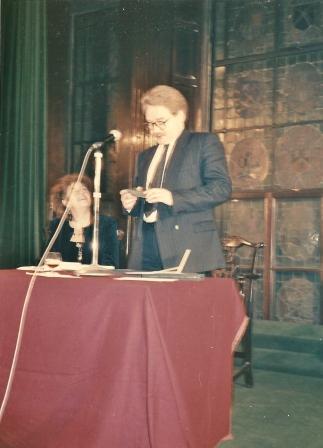
The Award was presented to me by the then Chairman of the CWA, Susan Moody and I pointed out in my acceptance speech that it really should have gone to Sarah Caudwell’s The Sirens Sang of Murder. (I met Sarah for the first time when we were seated together that night and we instantly formed a strong friendship which lasted until her untimely death in 2000.)
The Last Laugh Award is now made at the annual Crimefest convention and is sponsored by Goldsboro Books and winners have included Carl Hiaasen, Janet Evanovich, Christopher Fowler and Ruth Dudley Edwards, but I am still disgracefully proud of having won the first one, and to mark the occasion, Telos Crime have issued a new paperback edition of Angel Touch.
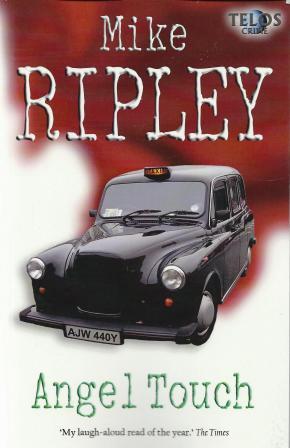
Modesty, however, prevents me from claiming that mine is the only Silver Jubilee in need of celebration this year, as 1989 was a year which saw a remarkable crop of new talent on the crime-writing scene. Not only did Philip Kerr’s debut novel March Violets introduce Bernie Gunther – a private eye treading possibly the meanest streets of all in Nazi Germany in 1936 – but John Harvey, already with a dozen novels under his belt, launched the career of his most famous character Inspector Charlie Resnick in Lonely Hearts. Both characters, I am happy to say are still with us; a new Gunther novel coming out last year I believe and a new Resnick this summer.
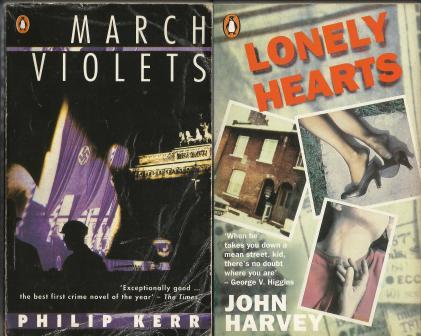
It was also the year which saw the first appearance of Georgina Powers, one of a new breed of tough, computer-savvy young heroines (who were British, not Swedish); in Denise Danks’ debut novel The Pizza House Crash, which has recently been reissued by Ostara Crime.
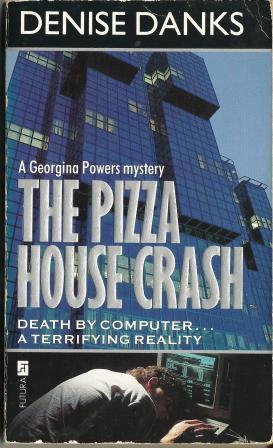 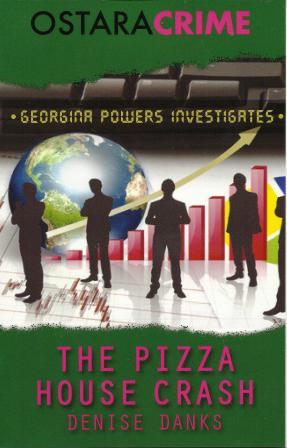
Mike Phillips also made his debut with the novel Blood Rights, which introduced journalist sleuth Sam Dean attempting to trace the missing daughter of a Tory MP in the badlands of Notting Hill. Mike went on to adapt his novel for filming by the BBC, starring Brian Bovell as Sam Dean, in 1990 and John Harvey adapted his early Charlie Resnick books for a sadly short-lived BBC series starring Tom Wilkinson.
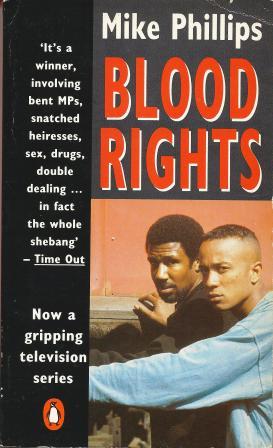 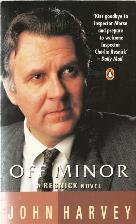
And I could not possibly withhold anniversary congratulations from Lindsey Davis who, in her debut The Silver Pigs, gave us the endearing Roman private eye Marcus Didius Falco, whose adopted daughter Flavia Alba now carries on the ‘family business’ in a new generation of adventures, the second of which, Enemies At Home is published by Hodder next month.
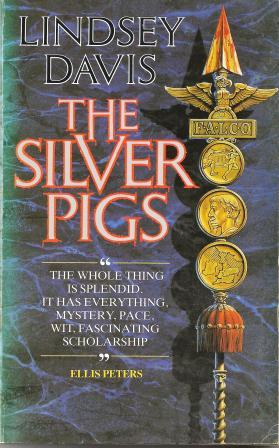 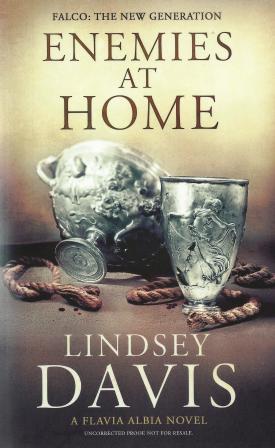
1989 must have been an exceptionally strong year for new crime-writing talent as I do not believe Phil Kerr, Mike Phillips, Denise Danks or Lindsey Davis were considered for the Crime Writers’ Association’s John Creasey Award for best first novel, which went to Annette Roome for A Real Shot in the Arm.
More Library Crime
It is some time now since I had a permanent office in London. These days I adopt the practice of ‘hot-desking’, carrying my quills and papyrus with me and needing only a chair and a table-top to enable me to work. These are usually freely available in institutions known as ‘public houses’ – indeed, I am known by sight in several – but occasionally, when in need of reference material, I can be found in either of my regular haunts: the British Museum or the British Library.
Last year the British Library mounted an impressive exhibition of famous crime novels and its excellent bookshop sells several classic titles. Now the Library has gone into the publishing business with two titles from the 1930s, bringing them back, very attractively, into print for the first time in nearly 80 years.
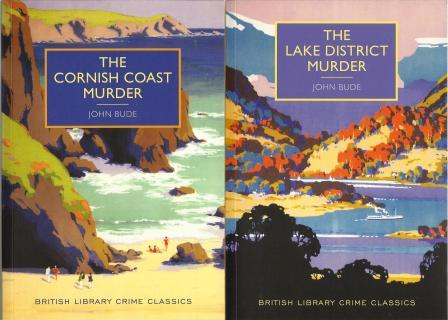
The Cornish Coast Murder and The Lake District Murder were both written by John Bude, of whom I have to admit I had never heard. I am afraid I was not much wiser when I learned that ‘John Bude’ was a pseudonym used by theatre producer and director Ernest Carpenter Elmore (1901-1957) or that he was a founder member of the Crime Writers Association in 1953.
None of my extensive collection of reference works on crime fiction have a listing for John Bude, but I did discover that under his own name of Ernest Elmore, he wrote numerous science fiction/horror novels possibly the most famous being The Lumpton Gobbelings. Had I read that title, or ever seen a copy, I am sure I would have remembered.
Long Live the Queen
Ellery Queen is an iconic crime writing name (almost an industry) in America if not the UK, where reissues of his backlist (or rather ‘their’ backlist as this was a writing partnership of two cousins) have been rare of late. However, Orion has just announced that it will publish in June new paperback editions of Ellery Queen titles The Origin of Evil (from 1951), The Player on the Other Side (1963) and The King Is Dead (1952). I wish the project well if only for purely personal reasons as I admit to being very badly read when it comes to the Ellery Queen canon, although I have to say I would have preferred a more traditional (more ‘pulpy’?) approach to the design of the covers. industry) in America if not the UK, where reissues of his backlist (or rather ‘their’ backlist as this was a writing partnership of two cousins) have been rare of late. However, Orion has just announced that it will publish in June new paperback editions of Ellery Queen titles The Origin of Evil (from 1951), The Player on the Other Side (1963) and The King Is Dead (1952). I wish the project well if only for purely personal reasons as I admit to being very badly read when it comes to the Ellery Queen canon, although I have to say I would have preferred a more traditional (more ‘pulpy’?) approach to the design of the covers.
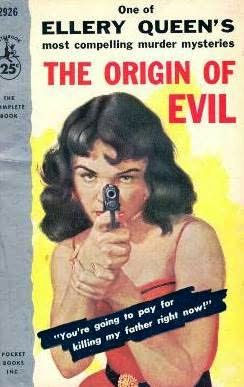
You Can’t Keep A Good Character Down…
This is very true in crime fiction, even when the character is actually an author and the creator of a great character. I refer of course to Sir Arthur Conan Doyle, whose fictional creations are not only as popular as they were 120 years ago (if not more so) but who, as himself, features in a new novel from Titan Books this month, The Revenant of Thraxton Hall, by Vaughn Entwistle, a name which itself could have come from a nineteenth century melodrama.
Conan Doyle – and his good friend Oscar Wilde – are the central protagonists in Revenant although it is not the first time either author has featured as a character.
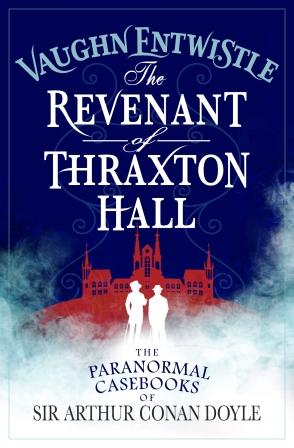 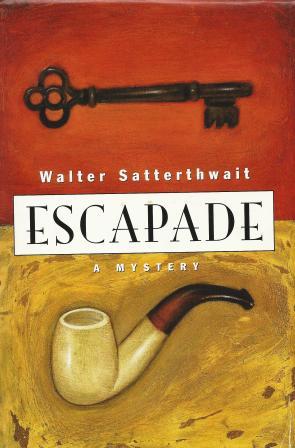
Gyles Brandreth has written six crime novels using dear Oscar as his sleuth and Conan Doyle (with Harry Houdini as his sidekick) featured quite brilliantly in Walter Satterthwait’s wonderful Escapade back in 1995.
…No, Really, You Can’t
Just before Christmas we saw Jill Paton Walsh’s latest novel to feature Dorothy L. Sayers’ famous sleuth Lord Peter Wimsey. More recently (so I’m told though I haven’t seen one), Benjamin Black resurrected Raymond Chandler’s Philip Marlowe and in September Sophie Hannah will give us her revivalist take on Agatha Christie’s Hercule Poirot.
With Wimsey, Marlowe and Poirot (not to mention James Bond) all back in action, it would be unthinkable if that equally memorable character of crime fiction, Margery Allingham’s Albert Campion, was left on the side-lines. Fortunately he has not been forgotten and is about to appear in a full-length novel for the first time in 44 years which I think is absolutely brilliant, but then, of course, I would.
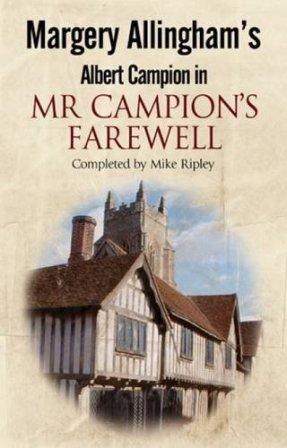
Mr Campion’s Farewell, to be published by Severn House, is a direct result of the Margery Allingham Society bravely accepting my offer to complete what would have been the third ‘Mr Campion’ novel written by Pip Youngman Carter, Margery’s widower.
Margery Allingham – one of the great Queens of English crime writing – created Albert Campion in 1929 and he was to mature and develop over the years (one of the few fictional sleuths to do so successfully) thanks to the charm and warmth of Allingham’s writing. Margery’s husband Pip, an artist, journalist and short story writer, was certainly a collaborator on her early work (as well as designing several of her dust jackets) and when she died in 1966, Pip completed the novel she had been working on, Cargo of Eagles, which was published posthumously in 1968. He was clearly the logical choice to continue the Campion series and did so with two novels: Mr Campion’s Farthing and Mr Campion’s Farthing. He was at work on a third, untitled novel, when he succumbed to lung cancer in late 1969.
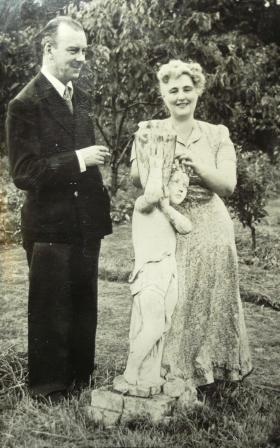
Pip and Margery (Allingham) Carter in the garden of their Essex home in 1953
This fragment of a third novel – four scene-setting chapters but no synopsis or plan – was left to the Margery Allingham Society and circulated among members under the title ‘Mr Campion’s Swansong’. I learned of it when I was asked to speak at one of the Society’s annual conventions and became intrigued and the Society bravely accepted my offer to complete the book as Mr Campion’s Farewell.
I have tried to follow Youngman Carter’s style, structure and setting (Suffolk in 1969) rather than attempt a dangerous pastiche of Margery Allingham, as she has many dedicated fans, myself included. I have, I hope, incorporated Margery’s sense of humour and tried to emulate some of her natural charm and warmth.
Every Day a School Day
I like to think that one is never too old to learn and that even at my great age and state of decrepitude, I can come across something which I did not know before. The trick at my age, of course, is remembering it.
I was not, until recently, aware of ‘slipstream fiction’ but I am now, thanks to publishers Telos who are about to launch a new novel, The Immortalists, by Andrew Hook.
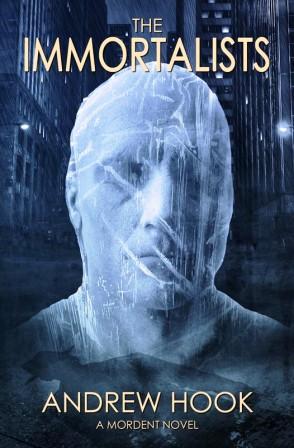
‘Slipstream fiction’ seems to be Andrew Hook’s metier of choice and I think it is a term usually applied to short fiction which genre-bends fantasy, science fiction, literary fiction, horror and now crime fiction, specifically the private eye genre in the case of The Immortalists, which features an ex-cop called Mordant on a case where murder victims seem to age after death…
In my brief researches into slipstream fiction, I learned that ‘cognitive dissonance’ is at the heart of it, though I am not sure if that makes me any wiser. What has convinced me to try Andrew Hook’s novel is that his previous, shorter, slipstream fiction is that it has been compared to a cocktail of Raymond Chandler, Malcolm Pryce and Jasper Fforde – and that’s a cocktail I really fancy trying.
From Down Under
Australian crime writers are far from unknown in this country – some names, such as Arthur Upfield go back to the 1930s, others, such as Peter Temple, are international stars and the Ned Kelly Awards, started in 1995, are now recognised as marks of quality writing. In fact the most surprising thing is that we don’t see more Australian crime fiction over here, though we are now seeing more Australian publishers of crime fiction entering the British market.
Scribe Publications are already established here with a London office, but their lead title for April is not Australian, rather a thriller translated from the Hebrew, Lineup by Liad Shoham, a practising lawyer in Tel Aviv and acclaimed as Israel’s leading crime writer.
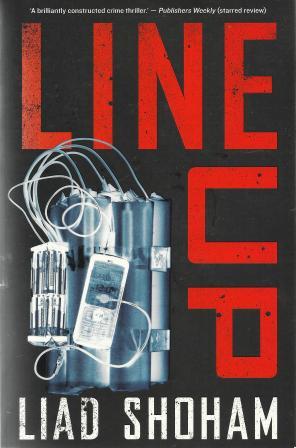 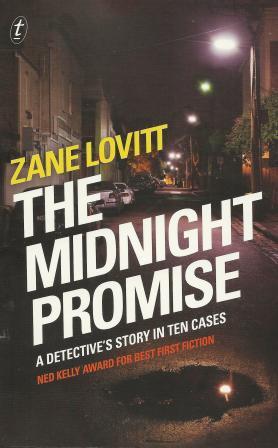
Text Publishing, of Melbourne, Australian Small Publisher of the Year, is pinning its hopes this month on local crime writer (local to Melbourne that is) Zane Lovitt and his novel of interlinked stories The Midnight Promise, which won the Ned Kelly Best First Fiction Award in 2013.
Cuban Beat
Unfortunately a busy schedule looks like preventing me from renewing my acquaintance with the famous Cuban crime writer Leonardo Padura Fuentes (usually known on book jackets as Leonardo Padura), whom I first met five years ago in the company of his British editor Francois von Hurter and Sir Gerald Kaufman the veteran M.P. and reviewer of crime fiction.
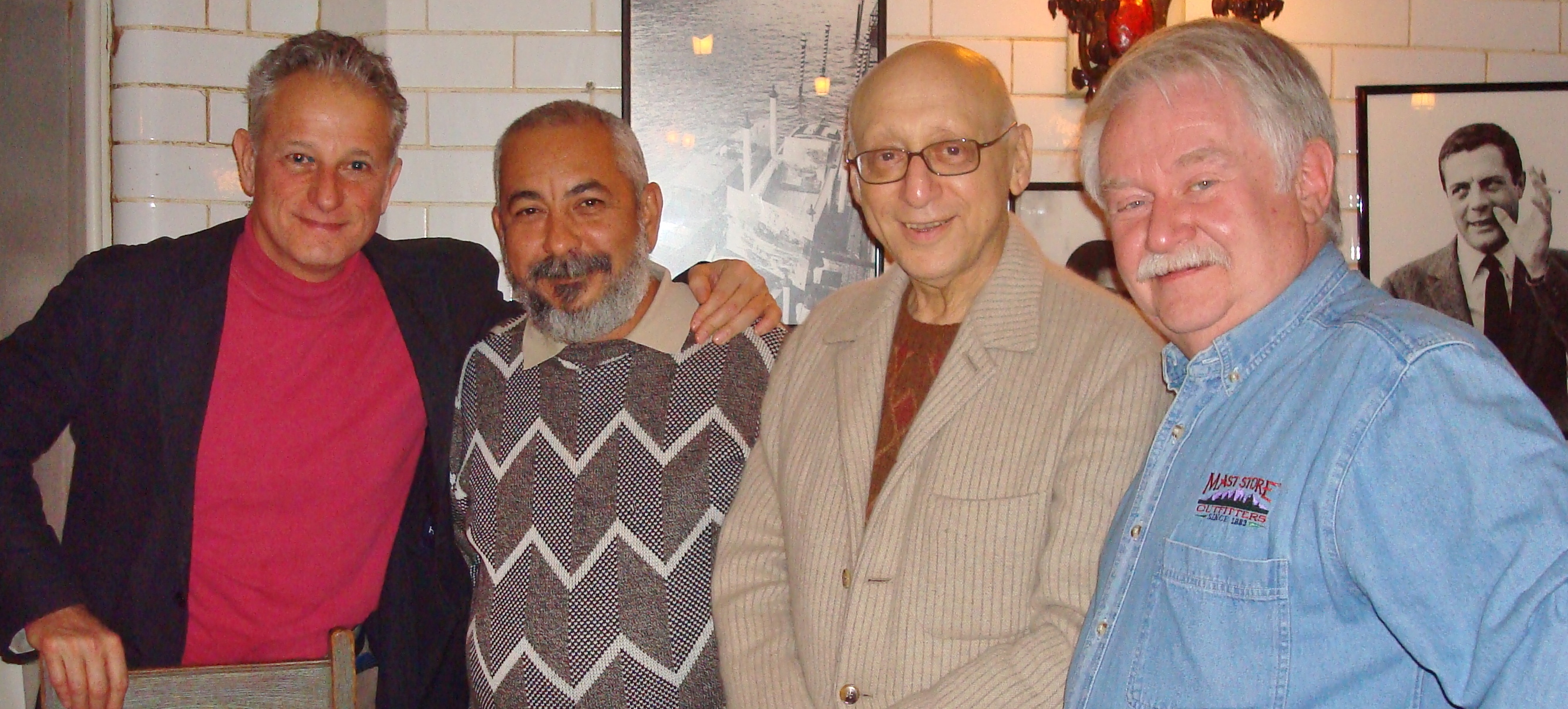
Leonardo is in London this month to promote his new book The Man Who Loved Dogs (Bitter Lemon), which I am told revolves around the assassination of Leon Trotsky in Mexico in 1940 and may be something of a departure from his internationally well-known ‘Havana’ series of off-beat detective novels.

Leonardo will be appearing to talk about his new novel at the Institute of Advanced Legal Studies on 19th March and on the 20th at Belgravia Books. Free tickets to both events are available from books@bitterlemonpress.com.
New Logo?
In my customary eagerness to open the morning’s mail here at Ripster Hall the other day, I was convinced for a moment that I had discovered the new logo for the Detection Club – not that I was aware that the Club actually had a logo.

Of course it was no such thing, but the cover of a proof copy of a new book, Kill Your Boss by American Shaun Kuhn to be published here by Sphere in July. It is a very striking piece of cover art and I’m sure would make a good logo.
Toodles!
The Ripster
P.S Other Coumn 88s are available but not recommended
GAWM 88.pdf
|